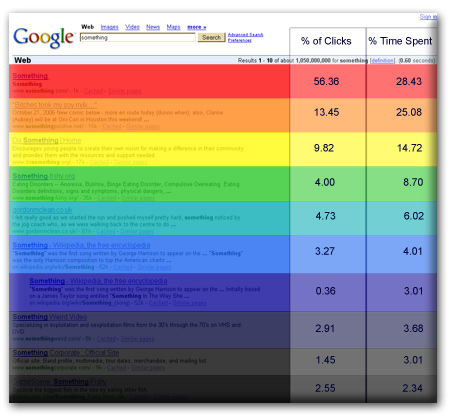Think about this for a second, what is your home-page? What is the first page that opens on your browser? I'm pretty sure it may be Google or another search engine. It may not, but most people reading this will have it set.
Ok, think about this; how do you actually get to a website that isn't in your favourites? You wont memorise the URL, well I hope not, instead you will type into a search engine the name and from there you will gain access.
With the internet's primary use to share information, we navigate its entirety via search engines (Google, Yahoo!, Ask.com and Bing), but do these give websites a fair share in the availability to be seen by the public?
Search engines use rankings when you type certain key words into its search bar. The rankings are based on how popular the site is, how accurately matched it is to your query and now, how much they have been paid to be higher in the list that you see making it more likely for it to be clicked on. Once you click 'search' the engine goes through 3 stages:
1) Web Crawling
2) Indexing
3) Searching
(NOTE: This is quite complicated so bare with me..)
In the Web Crawling stage the engine uses a bit of AI (see my Are We Able To Create AI post for more information), sometimes known as a spider - a designed program that searches through web links, to gather the initial stages of the search. Next is the Indexing stage, here the program organises the web pages in order matching the words or phrases that was entered in the search box. The words or phrases that are looked through on the sites are call Meta-Tags. These tags are specific or key words set by the site creator allowing search engines to pick them up, an example would be this blog post. This week's topic is on search engines, information, internet etc. these will all be used as tags that will make it easier for it to be noticed. Once that has been done the final Searching stage begins, this is when all of the sites and the result of your search is displayed. Remember this all takes seconds, sometimes less. Here I'll show you, I'll do a search on Google now on the word 'pizza': lets see how long it takes...
...wow, 0.21 seconds! This just proves that search engines are the most helpful tool on the internet, look at all the results I recieved, '197,000,000', I don't even know what that is...I think 197 million? Anyway, that's allot of information right? I would say, more than enough, which is why this blog post is partly named 'Information Overload', its almost like Google is boasting the amount of results it gives - arrogant search engine!
With this large amount of information, there should be a fair chance that smaller more independent businesses, but there isn't. When I searched 'pizza' the top three pages were:
This is most probably because Dominos and Pizza Hut have paid Google to be a higher rank in it's servers. This is wrong in my opinion because it means that an independent place is stuck on page 10 of the search, the 10th 'O' in Google's interface or number 100, 000 in the list - and let's face it, your not going to sieve through every link to the 10th page.
There have been experiments done to compare how users interact with the screen (the positioning of the data from web searches), the experiments were conducted by Gord Hotchkiss:
Notice the following:
- how tightly Google keeps attention focused on the upper left corner of the search results
- how attention drops off the further down you go on the page
- ads in the right column generally do not get much attention
(www.training.seobook.com/google-ranking-value)
Notice on this picture, it shows how long each link is looked at along with the amount of clicks it receives. It shows that links at the top (mainly 1-6) are most likely to be seen, as it gets further down the page some aren't even looked at - see the eye test above.
Staying on the idea about Google rankings, in a post on ramzws.com it talks about how much you spend on getting a website created but then not even making it onto Google. I think this quote, "If you can't find your website in Google then just how much of a bargain was that $495 website?" is a great one to focus on. Because search engines are the encapsulating tool when it comes to browsing the web, if your website doesn't appear then it is almost lost in cyberspace, hardly anyone will come across your site unless they enter in very specific key words. In the blog post on 'ramzws' it says that a site costing $5000 with more pages will probably be seen on search engines more than one with a couple of pages worth $400. I reckon this is wrong, it completely isolates the more independent companies wanting to be seen on the internet although I would agree that it is some what a competitive area, companies battling it out to get to #1 on Google but they must have as much right as the larger companies surely?


0 cool comments:
Post a Comment